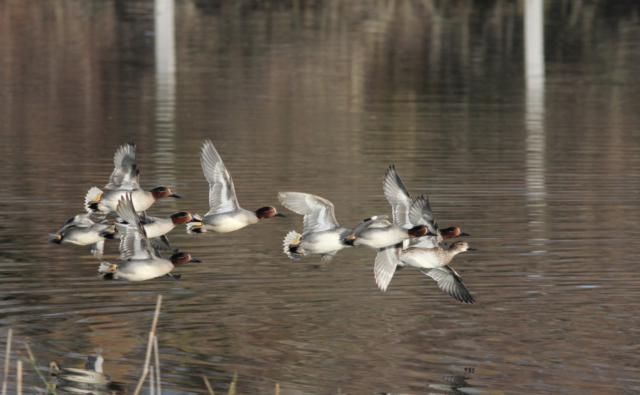Nearly 500 Mediterranean wetlands that are highly threatened by future climate change and natural habitat loss remain unprotected, of which 32 are of major importance for the conservation of waterbirds. These results were published in the scientific journal Biological Conservation and coordinated by the Tour du Valat research institute for the conservation of Mediterranean wetlands and the Centre for Ecology and Conservation Sciences (CESCO – National Museum of Natural History, CNRS, Sorbonne University). This study is perfectly in line with the objective of the Kunming-Montreal agreement adopted in December: halt and reverse biodiversity loss by protecting 30% of the planet by 2030. The team of scientists, besides identifying priority wetlands, stresses in this study the importance of strengthening the protected areas network in Mediterranean countries, especially in the Maghreb and Middle-East.
The key role of protected areas
Protected areas are effective biodiversity conservation tools in a context of global change. For instance, their ability to reduce natural habitat loss can help species adapt to climate warming. As a protection target of 30% of the world’s land area by 2030 has just been adopted as part of the Convention on Biological Diversity (Kunming-Montreal Global Biodiversity Framework), it is crucial to identify the sites to protect in order to maximise conservation efforts, in particular for the Mediterranean wetlands which are both highly threatened by anthropogenic activities and critical for the conservation of migratory birds. In this study, the researchers identified priority wetlands to protect in order to help waterbirds adapt to future climate warming in the Mediterranean basin. The identification of key wetlands to protect was achieved by using Mediterranean data of the International Waterbird Census (IWC), which enabled to study 151 species monitored between 2008 and 2017 in 2932 wetlands of 21 countries, as well as climate and land-use projections for the end of the 21st century under the most up-to-date scenarios of the Intergovernmental Panel on Climate Change (IPCC).
An adequate but insufficient protected areas network
The research team found that in the Mediterranean region, current protected areas are well located, especially strictly protected areas. Indeed, they generally encompass wetlands whose waterbird community might experience major difficulties in adapting to climate warming by the end of the 21st century, partly due to their high exposure to future temperature rise and natural habitat loss. The protection status of these wetlands should therefore facilitate the adaptation of their species. However, the team identified 490 non-protected wetlands whose community could face major difficulties in adapting to climate warming in at least one of the four future scenarios considered. Of these wetlands, 32 are of international importance for waterbirds and are located mainly in Turkey, Spain and several Maghreb countries.

The urgent need to protect wetlands in the southern and eastern Mediterranean
These results highlight the pressing need to strengthen the protection of Mediterranean wetlands, especially in Maghreb and Middle-East countries, as well as the importance of considering other drivers of biodiversity loss than climate change.
Reference :
Verniest, F., Le Viol, I., Julliard, R., Dami, L., Guelmami, A., Suet, M., Abdou, W., Azafzaf, H., Bendjedda, N., Bino, T., Borg, J. J., Božič, L., Dakki, M., El Hamoumi, R., Encarnação, V., Erciyas-Yavuz, K., Etayeb, K., Georgiev, V., Hamada, A., Hatzofe, O., Ieronymidou, C., Langendoen, T., Mikuska, T., Molina, B., Moniz, F., Moussy, C., Ouassou, A., Petkov, N., Portolou, D., Qaneer, T., Sayoud, S., Šćiban, M., Topić, G., Uzunova, D., Vine, G., Vizi, A., Xeka, E., Zenatello, M, Gaget, E. & Galewski, T. (2023). Anticipating the effects of climate warming and natural habitat conversion on waterbird communities to address protection gaps. Biological Conservation, 279, 109939. https://doi.org/10.1016/j.biocon.2023.109939



